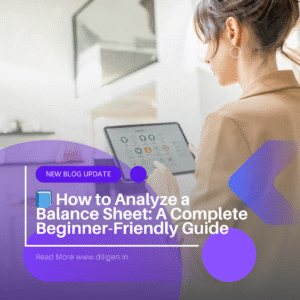During each financial year, employees need to project their investment options and provide an investment declaration to their employer. Employers use this declaration to deduct TDS on salary. The employees need to fill up their declarations on their employee portal and also submit documents as proof of their investment. If employees do not provide sufficient declaration or provide no declaration, the employer will deduct a higher tax than the actual tax to be paid by the employee. Hence, providing an accurate declaration is very important for an employee.
Providing investment declaration is beneficial to the employees for the following reasons:
- Planning savings, investment, and expenditure
- Receiving a higher in-hand salary
- Ease in filing annual ITR returns
How is this investment declaration done?
Investment declarations are required to be done in a specified format. This format is provided in Form 12BB. This form has to be filled incorrectly by the employee so that the employer can deduct TDS from the salary. Documentary evidence is also required to be attached when submitting Form 12BB to the employer.
Details required to be filled in Form 12BB:
Investment declaration requires an employee to provide details of their expenses and investment under different heads. Let us now look at each of the fields and understand what details are required to be filled:
- Personal details:
Here, the employee is required to fill in their name, address, PAN card number, and the financial year for which the declaration is being provided.

- House Rent Allowance (HRA):
Under this heading, the employee needs to mention the annual rent paid to the landlord along with the rent receipts. If the rent paid by the employee exceeds Rs.1 lakh per annum, then the employee has to also personal details of the landlord, i.e., the landlord’s name, address, and PAN card number.
HRA is a component of the salary, and it is received by employees as an allowance for the rental expenses. Hence, this component is allowed as a deduction only if the employee is paying rent. In case an employee does not live in rented accommodation, this allowance is taxable.
- Leave Travel Concession/ Assistance (LTC/LTA):
This allowance is given in order to meet the traveling expenses incurred by an employee for himself and his/ her family when on leave from work. This allowance is only given when the employee fulfills the following conditions:
- The travel should be at any place within India
- The amount of expense claimed should not exceed the actual expenditure and is limited only to the travel fare and other expenses like boarding, lodging, etc. cannot be claimed.
- The travel amount is the restricted economy class for airline tickets, first-class air-conditioned rail fare, and first-class deluxe class tickets for road trips.

- Interest on Borrowings (Home Loan):
Under this heading, an employee is eligible to claim a deduction for interest payable on the home loan. The employee needs to provide a documentary proof indicating:
- The amount of interest paid/ payable for the said financial year
- Name of the lender/ lending institute
- Address of the lender/ lending institute
- PAN card of the lender/ lending institute
- Deductions under Chapter VI-A:
This heading is where the employee needs to mention details of all the investments made by him/her during the financial year. The government has laid down certain limits and specific areas for investments which are available in various sections as below:
- Deductions under section 80C, 80CCC, and 80CCD
- 80C: An employee can mention amounts invested by him/her as premium for a life insurance policy, investment in ELSS, amounts invested in Public Provident Fund, NPS school, and tuition fees of a maximum of two children, etc.
- 80CCC: Any premium paid by the employee for an annuity plan
The maximum amount that can be claimed under 80C and 80CCC cannot exceed Rs.1.5 lacs for a financial year.
- 80CCD: An additional amount of Rs.50,000 over and above Rs.1.5 lacs can be claimed by an employee for investments made to the National Pension Scheme (NPS) of the Central Government
- Deductions under other sections, e.g., 80D, 80E, 80G, 80TTA, etc.
- 80D: Medical premium paid by an employee for self, spouse, children, and dependent parents
- 80E: Interest paid by the employee for a loan taken for higher education
- 80G: Donations made to charitable trusts and certain funds
- 80TTA: Interest received by the employee on a savings bank account is restricted to Rs.10,000 for the financial year.

- Verification:
Here, the employee needs to mention his/her name, place, date, and his/her signature, which proves that the investment declaration provided is true and complete.
Some important points to be remembered while filing the Form 12BB are:
- An investment declaration is required to be filled by the employee at the beginning of the financial year. However, Form 12BB is usually submitted to the employer by the end of the financial year.
- Form 12BB needs to be submitted to the employer along with all documentary proofs. And not to the income tax department.
- If the employee mentions less investment or delays in providing details in Form 12BB. Then the employer will deduct TDS based on the details available at hand for the financial year. The employee can later correct any difference in income tax. And either claim for a refund or pay any differential tax by filing his/ her ITR returns online on the government income tax portal.
Happy to help:
Providing a declaration in Form 12BB can be a daunting task. Especially when you are working under pressure to meet your work-related deadlines. It is also possible that you would forget or miss some important investments and allowances in the rush to submit the Form 12BB and this may lead to the payment of more taxes and less in-hand salary, which can further add to your worries.
If you are facing any of these issues or if you need a financial professional who can ensure that you file your Form 12BB accurately, then Diligen is here at your service. At Diligen, we have a pool of financial and tax experts who not only take care of corporate taxes but provide expert investment solutions to individual clients.
The tax solutions provided by Diligen for individual and salaried clients help them plan their expenses and investments meticulously so that they channel their hard-earned money in the right place and secure their future as well. We provide customized tax solutions and help our clients in making the right investment choices. By providing them with many tax-saving benefits while ensuring that they focus on their careers and do not fret while making their annual investment declarations.




